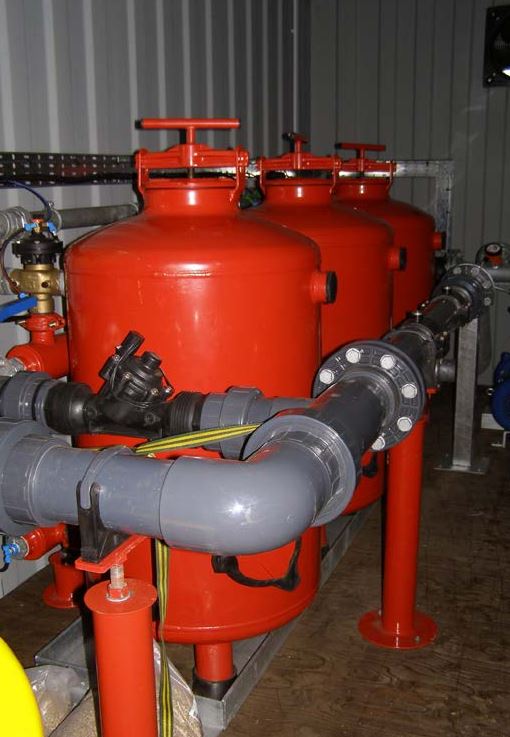Please click here to access the main AHDB website and other sectors.
- Home
- Knowledge library
- Sources of irrigation water for horticulture
Sources of irrigation water for horticulture
Water of irrigation can come from mains suppliers, from rainwater harvesting or collection and recycling of used water. Learn about the advantages and disadvantages of each type of water supply.
This information was last updated in 2019.
Go back to the main page: establishing a resilient water supply
Which water supply?
Mains, rainwater or recycled water? The key points to consider are:
- Cost
- Accessibility of sources
- Available space for collection, treatment and storage
Mains water
Mains water supply is organised by geographical area, through wholesalers.
With the opening up of the water retail market, businesses are now able to shop around for a supplier, not necessarily the local wholesaler, who provides billing and other services.
Although mains supply is the most convenient source, it is also the most expensive; prices vary depending upon tariff and area, but are generally up to 15 times the cost per cubic metre of winter-abstracted water.
- Check that you are using the most cost-effective tariff. Some retailers offer a cheaper interruptible tariff for irrigation use.
- If sewerage charges are based on water meter readings, you can ask your sewerage services supplier for a reduction to take account of the water used for irrigation.
- When using water from the mains, always include a break tank between the incoming mains supply and the irrigation system to prevent any risk of mains contamination through back-siphoning.
- Compliance with The Water Supply (Water Fittings) Regulations 1999 is required and may be inspected by water wholesalers.
Mains water shortages
Hosepipe bans or Temporary Use Bans (TUBs) and Drought Orders may be brought in during periods of water shortage.
TUBs only apply to domestic or other non-commercial premises and there is a statutory exception from Drought Order restrictions for irrigating plants that are grown or kept for sale or commercial use.
Surface water and ground water
Water can be abstracted from rivers, streams, ponds, wells, boreholes and even drains, and all these methods must be licensed if the amount of water taken up exceeds the daily de minimis limit.
In some cases a licence may also be needed for installation of a well or borehole to abstract groundwater.
The cost of abstracted water is much cheaper in the winter (November to March) than summer (April to October).
Licences are issued by the environmental regulator who also regularly reviews abstraction costs.
Separate regulations govern private water supplies intended for human consumption, such as domestic use or in food manufacture, to ensure it is safe at all times.
Water harvesting and recycling
Some businesses are able to collect useful amounts of rainwater from roofs or harvest run-off irrigation water.
This can be recycled, usually after some form of physical or chemical treatment. See an example of a filtering system in Figure 1.
 John Adlam
John Adlam
Figure 1. In-line filtering system to remove suspended solids from irrigation water.
- You may need a licence for rainwater harvesting or the use or recycled water, depending upon the collection process.
- Water from these sources should be used where non-potable water would also be suitable.
- Be aware that some customers refuse to allow edible crops to be irrigated with recycled water.
- For water supply resilience, businesses relying on rainwater harvesting need adequate on-site water storage capacity.
Water quality
Mains water is supplied as ‘potable’ quality.
The quality of abstracted or recycled water should be assessed to ensure it is fit for purpose.
- A risk assessment, supported by regular analysis of the chemical, physical and biological make-up of the water, should be carried out.
- Nutrient content, alkalinity, electrical conductivity, biochemical oxygen demand (BOD), suspended solids and microbial pathogens) should be analysed.
It is essential you know what treatment is required to make abstracted or recycled water suitable for irrigation purposes.
You should monitor water quality throughout the season.

